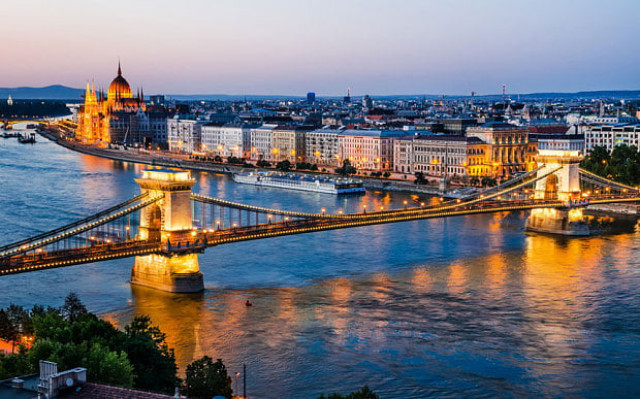Citizenship programmes: High net-worth Pakistanis buying a safer haven
Leading consultant says 100-200 families avail this opportunity every year

PHOTO: AP
Pakistan’s security situation may have improved a notch, but years of turmoil and lack of hope still push the country’s citizens into the arms of another.
Dozens of high net-worth Pakistanis are buying citizenships of countries in North America and Europe every year as they try to secure a safer future for their families, away from the political and security turmoil at home, immigration consultants say.
10,000 Pakistanis hold multiple passports
The citizenship-by-investment programmes offered by countries like Hungary, Cyprus, Grenada and Antigua and Barbuda have caught the interest of Pakistani investors in recent years, following in the footsteps of dual-nationality seekers from the Middle East, China and India.
Citizenships and residency permits are up for sale for between Rs50 million and Rs150 million ($0.5 million to $1.5 million) – an amount roughly around the cost of an average 500 square-yard house in Karachi’s upscale DHA.
“Between a 100 and 200 Pakistani families are availing this opportunity each year,” says Sikander Lalani, CEO of Lalani and Associates, a leading consultancy provider.
Pakistan among worst countries to live in for people under 25
“These are the sort of people who invest and then move back and forth. They are doing this to provide better education to their children and secure their capital.”
Financial industry officials say people have seen an impressive increase in their wealth over the past decade — riding on the success of the stock market and rising value of real estate. And every now and then, there comes an unusual request for purchase of US Dollars in the open market.
In a 2014 report, Arton Capital, which specialises in helping wealthy individuals get second citizenships, said Pakistan was among three countries from where 40% of the applications were originating.
Hungary, Portugal, the Caribbean Island state of St Kitts and Nevis, Grenada, Malta and Cyprus and a few other countries allowed foreigners to buy residency in the last five years as a way to shore up national coffer and attract investment.
Pakistani passport still among worst in the world: report
Programme particulars
The programmes differ with some countries offering residency within a few months without the requirement of making a visit.
Yet others ask investors to visit every year with a promise to give residency in five to six years after the initial investment and only after having learned its native language.
Investment has to be made either in real estate, government bonds or a specific development fund depending on different programmes. Few also offer a limited option to finance part of the investment.
Lalani says the charm for countries selling citizenships is not just investment. “They also happen to be attracting the best human capital. These investors are businessmen, lawyers, bankers and other professionals.”
Perhaps the most sought is the US Green Card. The US Immigration Investor Program, known as the EB-5, allows investors to obtain citizenship after five years against investment of between $500,000 and $1 million in a new venture or a troubled enterprise.
The initial residency and green card is available between 20 and 24 months after the investment.
But Pakistan has dual nationality arrangements with only 16 countries, including the US, Canada, UK France and Belgium. To acquire the citizenship of any country outside this list, a Pakistani would have to give up his or her nationality.
Karachi popular, Lahore and Islamabad fail to match
The list does not include Hungary, Portugal, Grenada, Malta, Cyprus, St Kitts and Nevis and Antigua and Barbuda, which have been promoting their citizenship-by-investment programmes.
However, it is not often that high net-worth individuals who have capital and interest in Pakistan would want to renounce their nationality.
Something fishy?
Concerns have started to emerge about the kind of capital these investment programmes are attracting, especially as governments struggle to battle money laundering and tax evasion.
Lalani insists intensive due diligence (countries charge clients between $2,000 and $7,500 for the purpose) filters out bad money from the good. The transactions are made through banking channels which follow all compliance requirements.
“An investor has to disclose his source of wealth. He needs to shares detail about where the investment money is coming from and how he earned it. It has to be legit.”
But a money transfer agent said these schemes also allow tax evaders and those with ill-gotten money to get away. “Who knows how much has been accumulated in offshore accounts. And there is always some new way of making the black money white,” he said.
The Writer is a staff correspondent
Published in The Express Tribune, November 2nd, 2015.
Like Business on Facebook, follow @TribuneBiz on Twitter to stay informed and join in the conversation.



















COMMENTS
Comments are moderated and generally will be posted if they are on-topic and not abusive.
For more information, please see our Comments FAQ